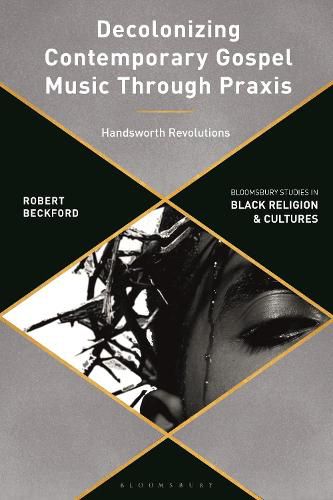Readings Newsletter
Become a Readings Member to make your shopping experience even easier.
Sign in or sign up for free!
You’re not far away from qualifying for FREE standard shipping within Australia
You’ve qualified for FREE standard shipping within Australia
The cart is loading…






Is contemporary Black British gospel music a coloniality? What theological message is really conveyed in these songs?
In this book, Robert Beckford shows how the Black British contemporary gospel music tradition is in crisis because its songs continue to be informed by colonial Christian ideas about God.
Beckford explores the failure of both African and African Caribbean heritage Churches to Decolonise their faith, especially the doctrine of God, biblical interpretation and Black ontology. This predicament has left song leaders, musicians and songwriters with a reservoir of ideas that aim to disavow engagement with the social-historical world, black Biblical interpretation and the necessity of loving blackness.
This book is decolonisation through praxis. Reflecting on the conceptual social justice album 'The Jamaican Bible Remix' (2017) as a communicative resource, Beckford shows how to develop production tools to inscribe decolonial theological thought onto Black British music(s). The outcome of this process is the creation of a decolonial contemporary gospel music genre. The impact of the album is demonstrated through case studies in national and international contexts.
$9.00 standard shipping within Australia
FREE standard shipping within Australia for orders over $100.00
Express & International shipping calculated at checkout
Is contemporary Black British gospel music a coloniality? What theological message is really conveyed in these songs?
In this book, Robert Beckford shows how the Black British contemporary gospel music tradition is in crisis because its songs continue to be informed by colonial Christian ideas about God.
Beckford explores the failure of both African and African Caribbean heritage Churches to Decolonise their faith, especially the doctrine of God, biblical interpretation and Black ontology. This predicament has left song leaders, musicians and songwriters with a reservoir of ideas that aim to disavow engagement with the social-historical world, black Biblical interpretation and the necessity of loving blackness.
This book is decolonisation through praxis. Reflecting on the conceptual social justice album 'The Jamaican Bible Remix' (2017) as a communicative resource, Beckford shows how to develop production tools to inscribe decolonial theological thought onto Black British music(s). The outcome of this process is the creation of a decolonial contemporary gospel music genre. The impact of the album is demonstrated through case studies in national and international contexts.